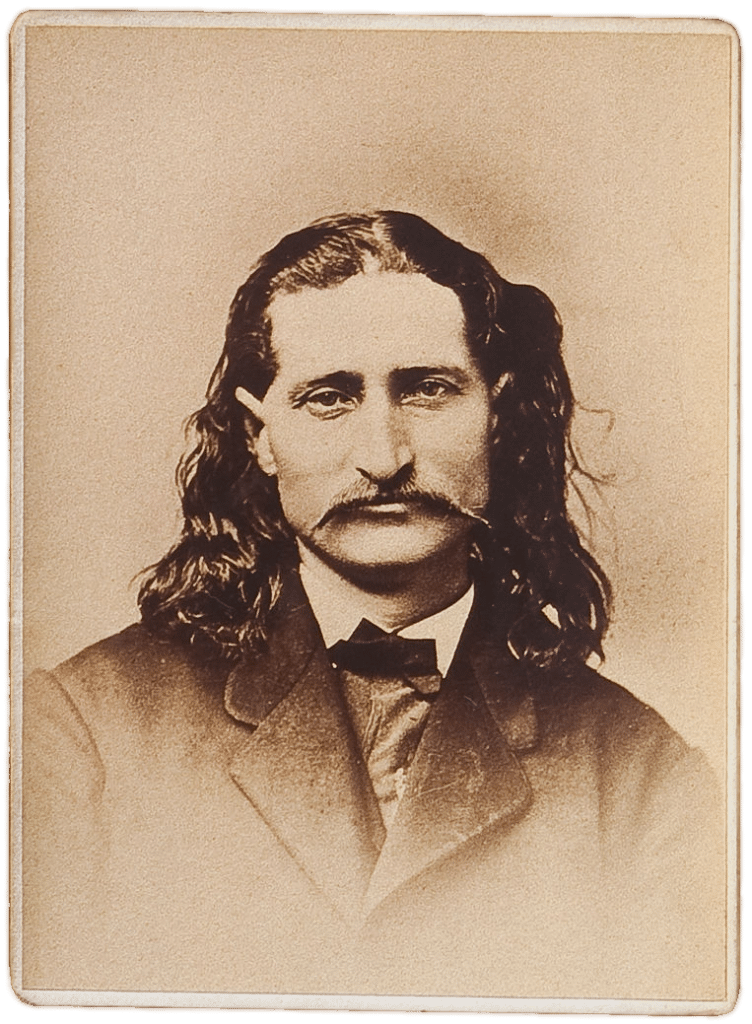
He was an enigmatic figure who defies simple analysis. He embraced, perpetuated, and added to his own legend and, alternately, was repulsed by it. Hickok was a legendary figure while still alive. Wild Bill died instantly, still holding his hand of aces and eights. 10 Saloon on August 2, 1876, he was shot through the back of the head by Jack McCall. In 1876 he joined the rush to the Black Hills, but he had no luck prospecting and spent most of his time drinking and gambling in Deadwood.

The next several years found him guiding Russian nobles on a buffalo hunt, gambling his way from one cow town to another, and performing in Buffalo Bill's Scouts of the Prairie theatrical production. During 1871 he was town marshal of Abilene. In August 1869 he was elected sheriff of Ellis County, Kansas, but that lasted only three months. marshal responsible for capturing army deserters and rustlers of government livestock.

Following the war he scouted for Custer's Seventh Cavalry and was a deputy U.S. He served as constable of Monticello, Kansas, in 1858, then worked as a teamster in the Great Plains before serving with the Union army as a wagon master, scout, and spy during the Civil War.

Born in Illinois in 1837 to a farmer and proprietor of a small store, James Butler Hickok grew up to become a gunfighter and lawman of legendary proportions in the West.


 0 kommentar(er)
0 kommentar(er)
